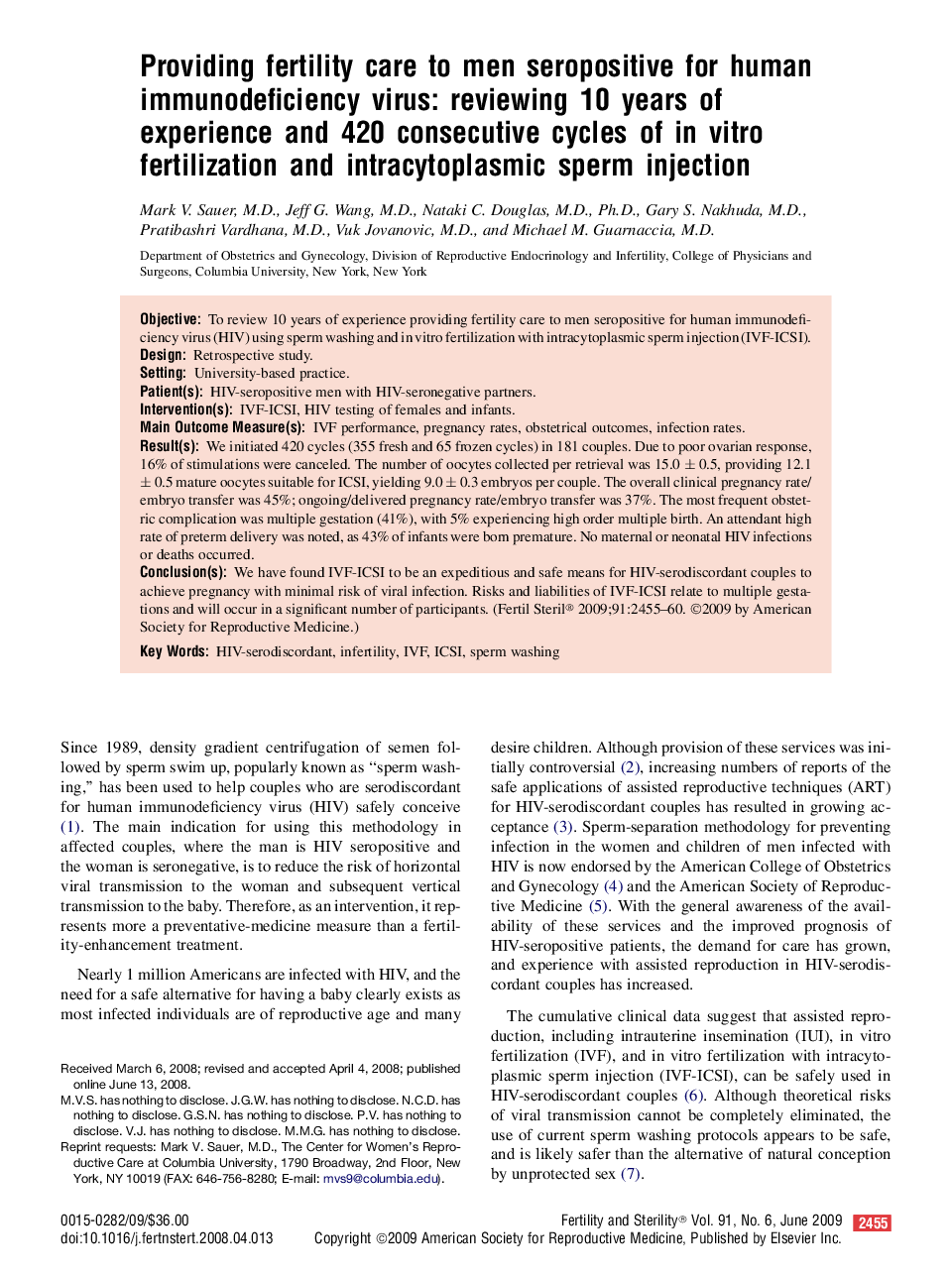| Article ID | Journal | Published Year | Pages | File Type |
|---|---|---|---|---|
| 3934259 | Fertility and Sterility | 2009 | 6 Pages |
ObjectiveTo review 10 years of experience providing fertility care to men seropositive for human immunodeficiency virus (HIV) using sperm washing and in vitro fertilization with intracytoplasmic sperm injection (IVF-ICSI).DesignRetrospective study.SettingUniversity-based practice.Patient(s)HIV-seropositive men with HIV-seronegative partners.Intervention(s)IVF-ICSI, HIV testing of females and infants.Main Outcome Measure(s)IVF performance, pregnancy rates, obstetrical outcomes, infection rates.Result(s)We initiated 420 cycles (355 fresh and 65 frozen cycles) in 181 couples. Due to poor ovarian response, 16% of stimulations were canceled. The number of oocytes collected per retrieval was 15.0 ± 0.5, providing 12.1 ± 0.5 mature oocytes suitable for ICSI, yielding 9.0 ± 0.3 embryos per couple. The overall clinical pregnancy rate/embryo transfer was 45%; ongoing/delivered pregnancy rate/embryo transfer was 37%. The most frequent obstetric complication was multiple gestation (41%), with 5% experiencing high order multiple birth. An attendant high rate of preterm delivery was noted, as 43% of infants were born premature. No maternal or neonatal HIV infections or deaths occurred.Conclusion(s)We have found IVF-ICSI to be an expeditious and safe means for HIV-serodiscordant couples to achieve pregnancy with minimal risk of viral infection. Risks and liabilities of IVF-ICSI relate to multiple gestations and will occur in a significant number of participants.
